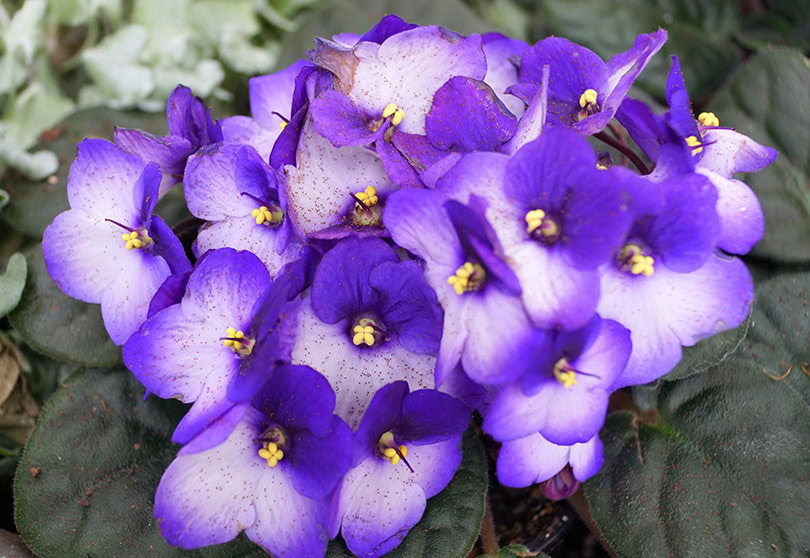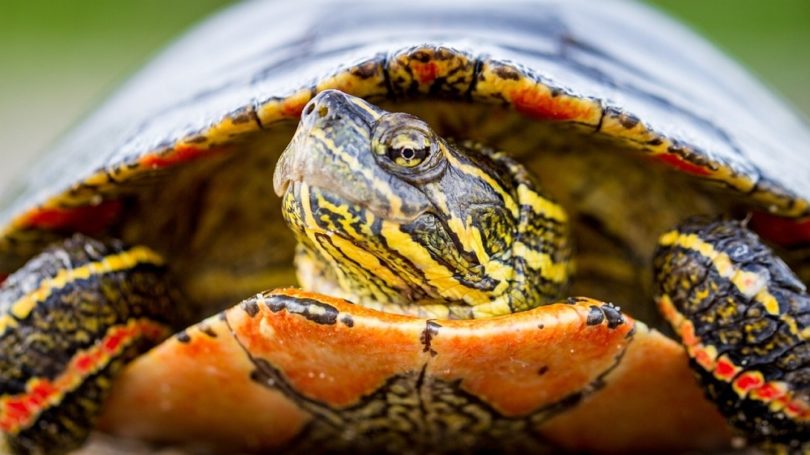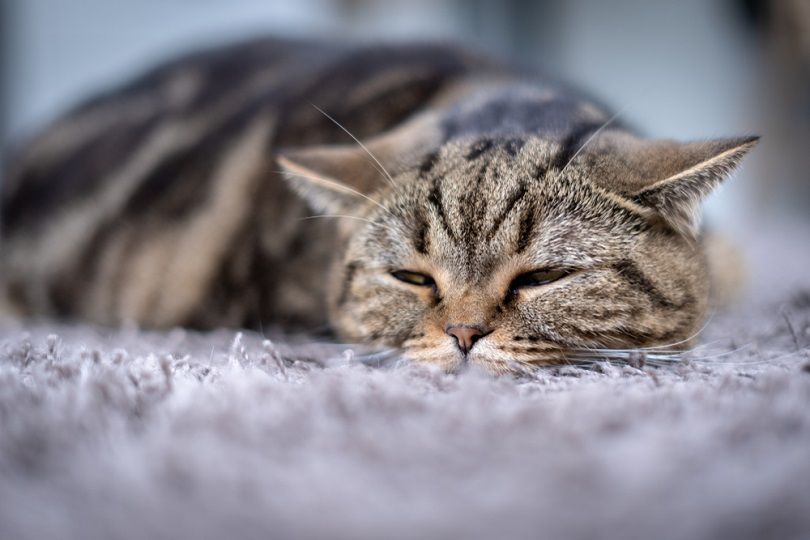VET APPROVED

The information is current and up-to-date in accordance with the latest veterinarian research.
Learn more »Click to Skip Ahead
The African violet (also known as Cape marigold) is a perennial and a common houseplant. Some cat owners may not consider the species’ safety for their cat when they first purchase the plant, which can be dangerous if the plant is poisonous to their pet. Fortunately, this flowering plant is non-toxic and safe for cats.
Most parts of the African violet are not toxic or harmful to cats if consumed in small quantities. However, we’ll discuss a few factors to consider before determining whether your African violet is safe for cats.

Can Cats Eat African Violets?
Cats are curious creatures who constantly explore their environment. Their curiosity may have driven them to take a bite out of your African violet (Saintpaulia spp.), but before you panic, according to the ASPCA website, African violets are not poisonous to cats and can safely be grown in the same environment as cats. This includes the wild version, which generally grows in gardens.
However, no pesticides, herbicides, or other growth-enhancing chemicals should be used during the growth stages of the African violet. It is reassuring that the plant is safe, but toxins from common gardening chemicals can harm your cat.
Why Is My Cat Eating My African Violet?
Some cats are more inquisitive than others and may chew on items, including plants, around the house. Kittens are also more curious and adventurous. Cats suffering from pica (the urge to eat non-edible items) may chew or eat items around the house. This can include houseplants, plastic, electrical cords, and other unusual items. Pica is more common in some breeds, but the exact cause is unclear.
If you have recently acquired an African violet, curiosity may have driven your cat to nibble on the plant. If you notice your cat chewing on items around the house, it is best to speak to your vet as soon as possible since it might be a sign of disease or a behavioral issue.
African Violet Fertilizers and Herbicides
Fertilizers and herbicides are commonly used to improve the African violet’s growth and blooming. However, these chemicals are toxic to cats and can cause serious gastrointestinal problems unless prompt treatment from a veterinarian is sought.
Herbicides and fertilizers can be added to the soil or directly to the plant. Unfortunately, some chemicals can be stored in the plant for a long time. Before purchasing an African violet, ask the store about its history and whether any chemicals have been used on it.
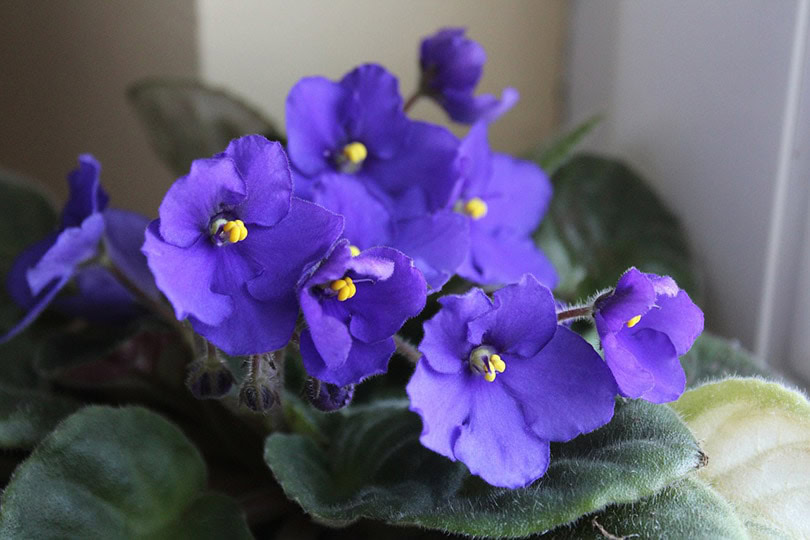
Which Parts of African Violets Are Safe for Cats?
All parts of the African violet are safe for cats, including the leaves, flowers, roots, and stems of the plant. However, you should still ensure that your cat does not try to eat African violets, even if they are not poisonous to cats.
The African violet has thick, hairy leaves that might be irritating to your cat’s soft tissue, including their lips and mouth. If your cat eats a large amount of African violets, they can suffer from diarrhea, bloating, and vomiting because they cannot properly digest large portions.

How to Stop Cats From Eating African Violets
If you have a reoccurring problem with your cat eating your houseplants, it is best to investigate their diet to determine if a particular nutrient is missing from their staple food. A cat with a balanced and complete diet to suit their carnivorous dietary requirements will rarely seek different food sources, especially from plants that do not taste good to them.
It is important to use effective and safe measures to protect your cats and houseplants.
Indoor Plants
It’s best to keep your indoor plants in an area your cat cannot access. You can keep them on elevated shelves or in a secure room your cat cannot enter.
Avoid using essential oils on or around plants to deter your cat, even if they are marketed to be pet safe. Cats are extremely sensitive to essential oils and can suffer from poisoning.
Outdoor Plants
Keeping cats out of your garden can seem difficult, but it is possible! You can use scat mats, motion-activated sprinklers, or loud and sudden noises.
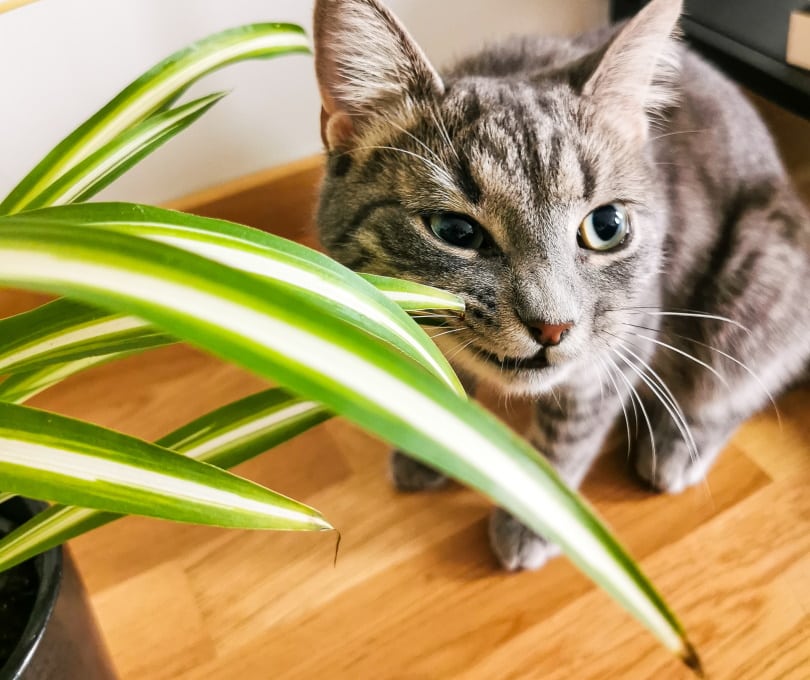
Keeping Houseplant with Cats
Many cat owners may be discouraged from keeping plants when they have cats. However, if you take precautions, you can keep your pet safe.
- Ensure that the plant species is safe for cats.
- Buy organic plants.
- Keep the plants in a small vivarium. This allows you to view the plant’s beauty in a restricted area that cats cannot reach.
- Ensure that the plant’s pollen does not irritate your cat. The blooming flowers should have little to no visible pollen.
- Provide your cat with a balanced and varied protein-based diet so that they do not seek food sources elsewhere, such as your houseplants.


Final Thoughts
African violets are not poisonous to cats, and if you witness your cat nibbling at your African violet, they should be fine. However, you should still monitor them and contact your vet if you notice anything unusual. Always monitor your cat’s behavior after they eat parts of the plant, and ensure that safety measures are in place to deter your cat from doing this again.
Featured Image Credit: African Violet_Khairil Azhar Junos, Shutterstock
